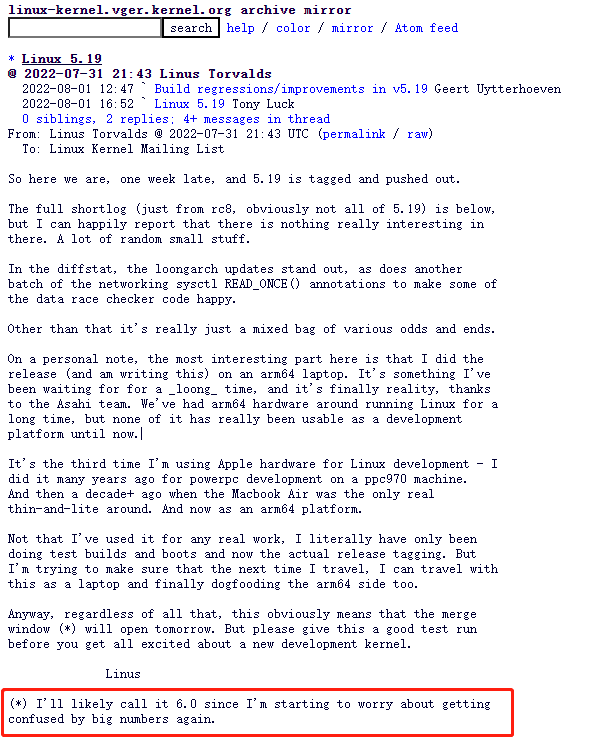Produced | OSC Open Source Community (ID: oschina2013)
Linux welcomes new changes:
1. Linux 5.19 is officially released
-
Merged LoongArch CPU architecture
-
Support for reporting the creation time of FAT32 files
-
Introduced AMD "BRS" branch sampling feature
-
RISC-V: supports running 32-bit binaries on 64-bit systems
-
Support for compressed firmware using Zstd
-
Get nearly half a million lines of new graphics driver code
2. Linux 5.20 may upgrade the version number to Linux 6.0

The release of 5.19 means the next merge window will open tomorrow. I might call it 6.0 because I'm starting to worry about getting confused by the big numbers again.
END
OSC Open Source Community
, like 16